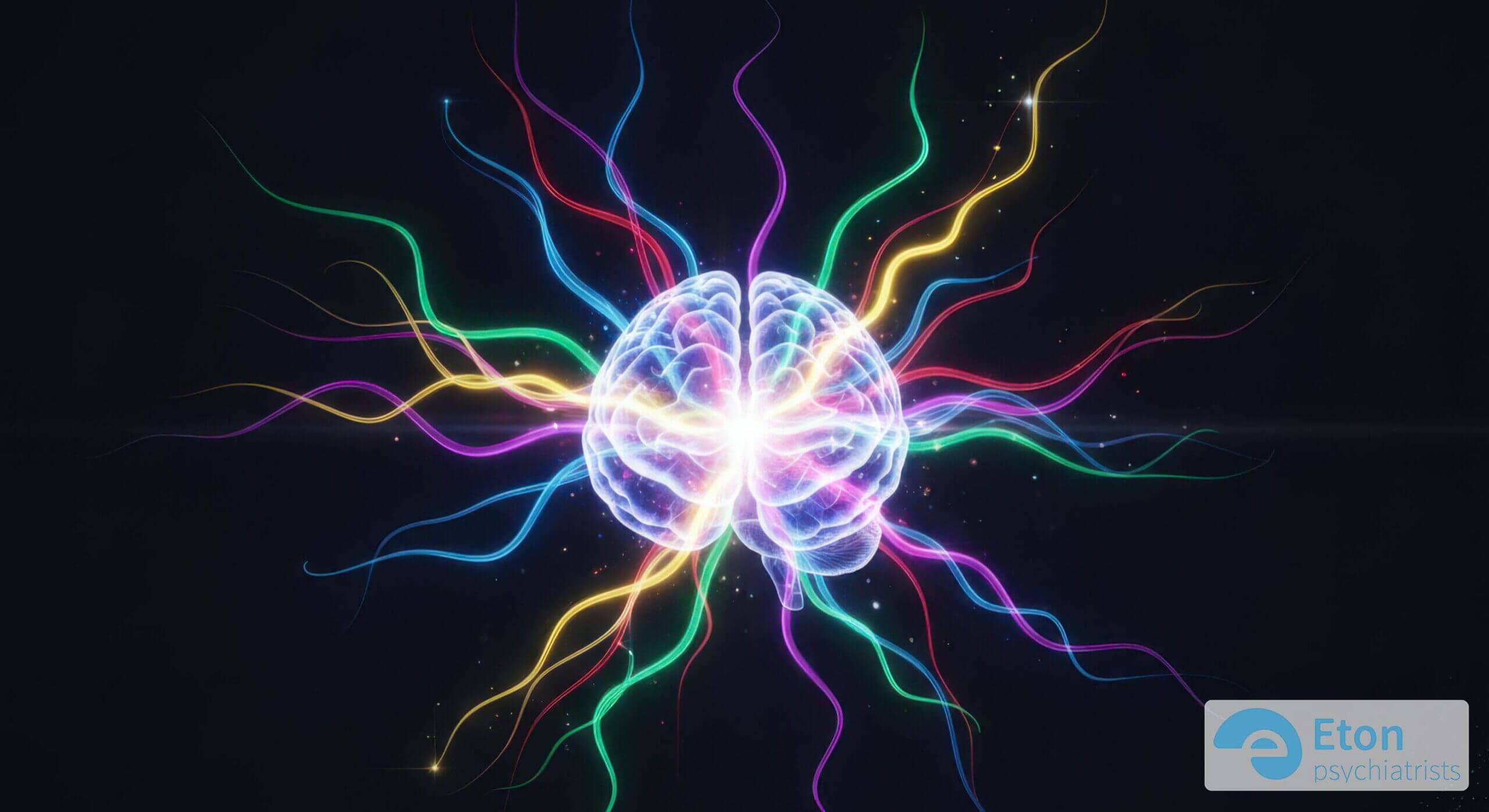
Understanding RSD, Turning Sensitivity into a Strength of ADHD
Rejection Sensitivity Dysphoria (RSD): Understanding the Emotional Avalanche
Rejection Sensitivity Dysphoria (RSD) is a condition where even minor perceived rejection, criticism, or failure triggers disproportionately intense emotional reactions. These responses—often described as overwhelming shame, anger, or despair—can profoundly affect personal relationships, professional growth, and mental well-being. For individuals experiencing RSD, rejection is not merely a fleeting sting but a deeply wounding experience, often accompanied by the thought that their value or identity is tied to the rejection.
The Connection Between RSD and ADHD
RSD is notably prevalent among individuals with Attention-Deficit/Hyperactivity Disorder (ADHD). Research estimates that ADHD impacts *5-9% of children globally, with *70% continuing to experience symptoms into adulthood. Among adults diagnosed with ADHD, up to 99% report emotional hypersensitivity, and 30-50% identify RSD as one of their most challenging struggles.
For a more comprehensive understanding of ADHD, explore What’s ADHD? or delve into the specific challenges faced by women with ADHD in Understanding ADHD in Women.
What Causes RSD?

Neurological and Genetic Foundations
- Neurological Factors: People with ADHD often exhibit reduced activity in the *prefrontal cortex—the brain region responsible for emotional regulation. In addition, lower levels of dopamine, a neurotransmitter integral to emotional balance, amplify the impact of perceived rejection.
- Genetic Predispositions: Emotional hypersensitivity, along with traits like impulsivity, is often inherited. Families with a history of ADHD frequently pass down these predispositions, reinforcing a biological connection to RSD.
For further insights on overlapping conditions, see Key Similarities Between Autism and ADHD.
Environmental Factors
- Chronic Childhood Criticism: Many children with ADHD grow up under intense scrutiny, regularly receiving corrections for behaviors such as impulsivity or inattentiveness. This constant stream of criticism often fosters a deep fear of failure and rejection.
- Social Rejection and Bullying: Repeated experiences of exclusion or bullying during childhood leave enduring scars, heightening an individual’s sensitivity to perceived judgment or social disapproval.
For a closer look at how ADHD intertwines with environmental influences, visit Journey to Understanding Autism and ADHD.
How RSD Manifests in Daily Life

In Relationships
Individuals with RSD often misinterpret neutral or benign actions as rejection or disapproval, leading to emotional withdrawal or conflict. This heightened sensitivity can strain even the closest relationships.
Example: Liam, a thoughtful software engineer, misinterpreted his partner’s suggestion to spend more time together as criticism of his work-life balance. Feeling unappreciated, he withdrew emotionally, creating distance in their relationship.
In Professional Settings
Fear of rejection often prevents individuals from taking risks or pursuing growth opportunities, stalling their career development.
Example: Sophia, a talented marketing professional, hesitated to share creative ideas during team meetings, fearing negative feedback. This avoidance resulted in missed opportunities for professional advancement.
Explore more about thriving with ADHD at work by reading Access to Work: A Lifeline for Individuals with ADHD.
Managing RSD: Strategies for Resilience
1. Therapy—The Role of CBT (Cognitive Behavioral Therapy)
CBT is highly effective in helping individuals challenge and reframe negative thought patterns triggered by rejection sensitivity.
Steps in CBT:
- Identify the negative thought: (e.g., “They think I’m incompetent at my job.”).
- Examine its accuracy: (e.g., “Is there actual evidence to support this belief? Could there be another explanation?”).
- Replace with a healthier perspective: (e.g., “They’re suggesting improvements, not doubting my abilities. Constructive feedback can make me better.”).
Dive deeper into this therapeutic approach in Navigating Rejection Sensitivity: Understanding RSD in ADHD.
2. Harnessing Mindfulness Practices
Mindfulness is a valuable tool for reducing emotional reactivity and improving emotional regulation. Regular practices include:
- Breathing Techniques: The “4-7-8 method” helps reduce stress—inhale for 4 seconds, hold your breath for 7 seconds, and exhale slowly over 8 seconds.
- Guided Meditations: Use apps like Calm or Headspace to incorporate daily moments of mindfulness.
- Gratitude Journaling: Regularly reflect on three positive moments or achievements to shift focus away from negative emotions.
For more suggestions, visit Mindfulness Practices for ADHD and Emotional Health.
Taking the First Step Toward Empowerment

Although Rejection Sensitivity Dysphoria can feel overwhelming, the right tools and support can significantly ease its challenges. Resources like Eton Psychiatrists and guides such as How to Diagnose ADHD in Children offer a solid foundation for understanding and managing RSD effectively.
Remember, progress begins with small steps: reframing a thought, practicing mindfulness, or reaching out for professional help. Over time, consistent effort transforms emotional sensitivity into a profound source of strength, empathy, and resilience.
Brighter days are ahead! For personalized advice or further support, consider exploring Eton Psychiatrists.
Frequently Asked Questions (FAQs)
- Can RSD be completely treated? While RSD cannot be entirely cured, its symptoms can be effectively managed through Cognitive Behavioral Therapy (CBT), mindfulness practices, and, in some cases, medication.
- How is RSD connected to ADHD? RSD is particularly common in individuals with ADHD due to neurological and emotional sensitivity. Many ADHD patients report that RSD is one of their most challenging struggles.
- Are rejection sensitivity and low self-esteem the same? No, rejection sensitivity often involves intense emotional reactions to perceived criticism, whereas low self-esteem is a broader issue involving a general lack of confidence in oneself.
- Can mindfulness help with RSD? Yes, mindfulness practices can significantly reduce emotional reactivity and improve emotional regulation, which helps individuals manage RSD symptoms more effectively.
- What should I do if RSD impacts my daily life? Seeking professional help from a psychologist or therapist trained in ADHD and RSD can be beneficial. They can help you implement coping strategies to mitigate its effects.
Conclusion: Embracing Growth and Understanding
Rejection Sensitivity Dysphoria (RSD) can profoundly shape how individuals experience the world, but it also offers an opportunity for growth and self-awareness. By understanding the roots of RSD and embracing strategies to manage its challenges, individuals can move toward a life of greater emotional balance and meaningful connections.
Every step taken—whether seeking therapy, practicing mindfulness, or building supportive relationships—is a testament to resilience and the human capacity for growth. These efforts transform emotional sensitivity from a source of pain into a strength that fosters empathy and deeper self-understanding.
The journey toward empowerment is not without obstacles, but it is one filled with possibility. With persistence and the right tools, individuals can reclaim their narrative, turning struggles into triumphs and achieving a fulfilling, balanced life.



